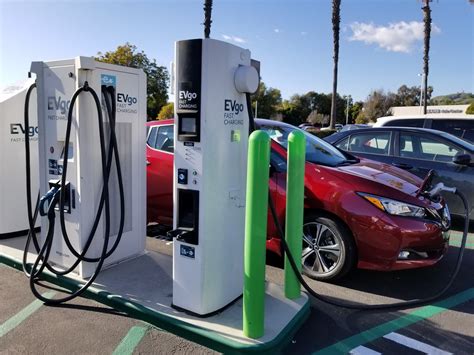Charge Up Your Savings: Exploring Electric Car Charger Rebates
As electric vehicles (EVs) gain traction worldwide, a growing number of incentives, including rebates on electric car chargers, are becoming available. These initiatives not only facilitate the transition to cleaner transportation but also make it more affordable for consumers. In this article, we will explore the various types of electric car charger rebates, how to qualify for them, and the financial benefits they can offer.
Understanding Electric Car Charger Rebates
Electric car charger rebates are financial incentives offered by governments, utility companies, and other organizations to encourage consumers to purchase and install home charging stations for electric vehicles. These rebates can significantly reduce the upfront costs associated with home charger installation, making electric vehicle ownership more appealing.
Types of Rebates Available
Rebates can vary depending on your location, the type of EV charger you choose, and local policies. Here are some common types of rebates available:
- Federal Rebates: The U.S. federal government offers tax credits for the purchase and installation of EV chargers. The federal tax credit can cover up to 30% of the installation costs, which can help offset the initial investment.
- State Incentives: Many states have their own rebate programs. For instance, California has the Consumer Assistance Program, which provides significant financial assistance for EV charger installation and purchase.
- Utility Company Rebates: Local utility companies often offer rebates for customers installing EV chargers. These incentives can further reduce the cost, sometimes covering hundreds of dollars.
- Local Grants and Programs: Cities and municipalities may also implement their own programs designed to support electric vehicle adoption, which may include rebates for charger installation.
How to Qualify for Rebates
Although the specifics can differ widely by program, there are often common qualifications for rebates:
- Proof of Purchase: To qualify for rebates, you usually need to provide proof of purchase or installation of the charger.
- Eligibility of Equipment: The charger must often be a certified model. Programs typically list approved models on their websites.
- Installation Requirements: Some rebates may require that the charger be installed by a licensed electrician or specific contractors.
- Location Restrictions: Many rebates are restricted to residents of certain states or municipalities. Always confirm eligibility based on your location.
Benefits of Installing an Electric Car Charger
Investing in an electric car charger comes with numerous advantages:
- Cost Savings: While the initial installation may seem steep, the long-term savings can be significant. EV owners benefit from lower fuel costs and reduced maintenance expenses.
- Environmental Impact: By switching to electric, you contribute to reducing greenhouse gas emissions and reliance on fossil fuels.
- Convenience: Having a home charging station means you can charge your vehicle overnight, ensuring your car is ready to go each day without needing to visit public charging stations.
- Value Addition: A home EV charger can increase the value of your property, making it an attractive feature for future homebuyers.
Conclusion
As electric vehicles continue to gain popularity, the available rebates and incentives for installing electric car chargers are becoming increasingly attractive. By taking advantage of various rebate programs, consumers can significantly reduce their installation costs, thereby encouraging the adoption of this cleaner technology. Not only do electric car chargers enhance convenience for vehicle owners, but they also promote environmental sustainability. As such, exploring your local rebate options can lead to substantial savings while contributing to a greener future.
FAQs
1. How much can I save with electric car charger rebates?
The amount you can save depends on your location and the specific rebate programs available. Federal tax credits can cover up to 30% of installation costs, while state and utility company rebates can add significant savings on top of that.
2. Are there any requirements for the type of charger I can install?
Yes, many rebate programs have specific requirements regarding charger models. It’s essential to check the rebate program’s website for a list of eligible chargers before making a purchase.
3. Can I install my charger myself to qualify for rebates?
Some programs require that the charger be installed by a licensed electrician. Always check the specific requirements of the rebate program you are applying for.
4. Where can I find more information about available rebates?
To find more information, visit your state’s energy department website, your local utility provider’s site, or check with federal resources such as the U.S. Department of Energy.
5. Will these rebates expire?
Many rebates have expiration dates or are contingent on funding availability. It’s essential to apply as soon as you are eligible to ensure you do not miss out on these savings.
This article adheres to HTML formatting suitable for WordPress and covers electric car charger rebates comprehensively, including all requested sections.
Download Electric Car Charger Rebate
